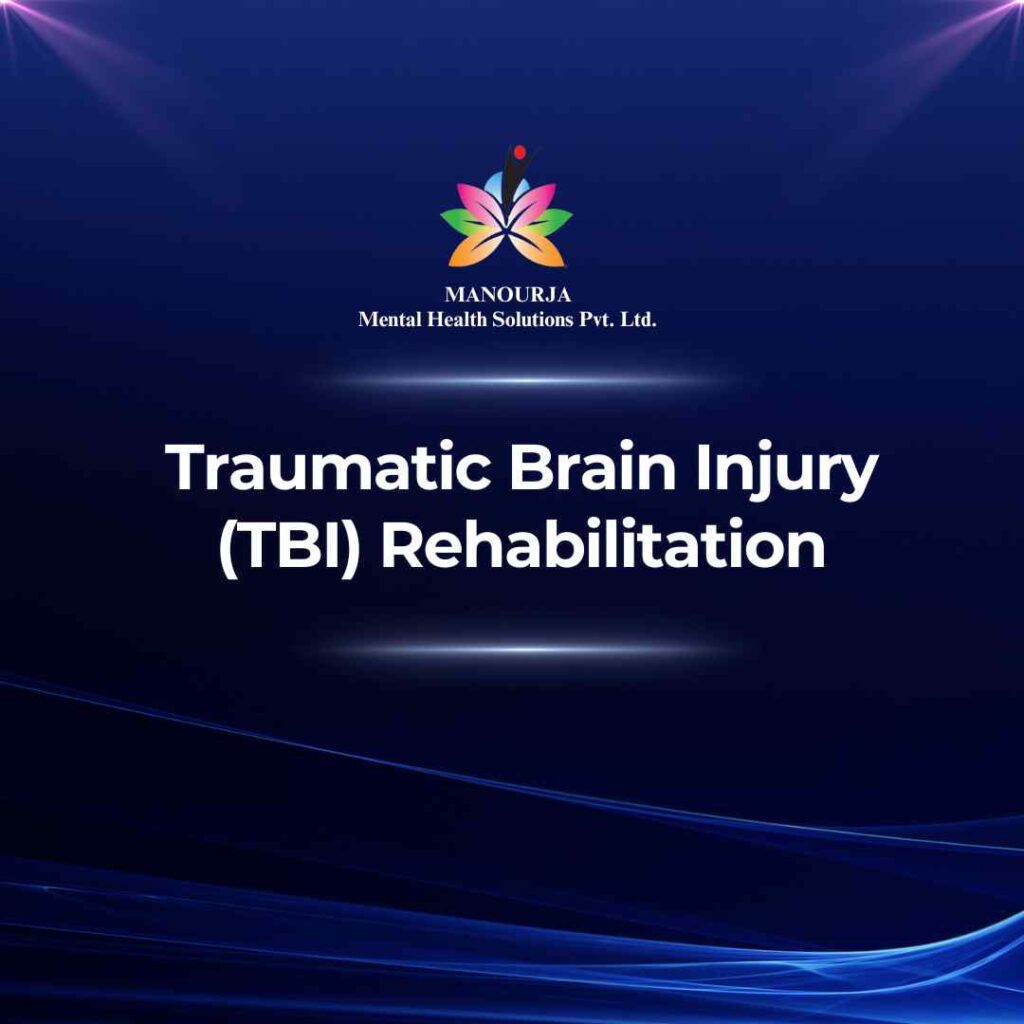Traumatic Brain Injury (TBI) Rehabilitation

Traumatic Brain Injury (TBI) is a complex injury with a wide spectrum of symptoms and disabilities. The impact on a person and their family can be profound. Individuals involved should be aware of the signs and symptoms of TBI that may require psychosocial rehabilitation, which can vary greatly depending on the severity of the injury. Rehabilitation is aimed at helping the individual regain the most independence possible, improving their quality of life both mentally and socially.
Cognitive Symptoms
- Memory loss
- Confusion
- Difficulty concentrating
- Impaired decision-making abilities
Physical Symptoms
- Headaches
- Fatigue or lethargy
- Speech difficulties
- Seizures
Emotional and Behavioral Symptoms
- Mood swings
- Agitation
- Depression or anxiety
- Social withdrawal
Understanding whether outpatient (OPD) or inpatient (IPD) psychosocial rehabilitation is needed depends on the severity and specific needs of the individual.
Indicators for Outpatient Psychosocial Rehabilitation (OPD)
- Mild TBI with retained daily functioning capabilities
- Stable condition that does not require 24-hour medical supervision
- Presence of a supportive home environment where daily visits to a rehabilitation center are feasible
Indicators for Inpatient Psychosocial Rehabilitation (IPD)
- Severe TBI requiring intensive rehabilitation
- Need for 24-hour medical monitoring and support
- Presence of significant behavioral issues or psychological conditions that require structured environments
Factors Influencing the Decision
- Severity and type of symptoms
- Level of family and social support
- Distance from rehabilitation services
- Overall health and comorbid conditions
Effectiveness of Psychosocial Rehabilitation
Psychosocial rehabilitation for TBI focuses on improving cognitive, social, and emotional skills. Rehabilitation might involve:
- Cognitive Rehabilitation: Therapies aimed at improving attention, memory, and executive function.
- Behavioral Therapy: To help manage mood swings, anxiety, and depression.
- Social Skills Training: To enhance communication skills and social interaction abilities.
- Vocational Rehabilitation: To help the individual in returning to work or school, adjusting tasks and environments according to the individual’s needs.
Rehabilitation Techniques and Approaches at MANOURJA
MANOURJA employs a multidisciplinary approach to TBI rehabilitation, incorporating various scientifically validated techniques:
- Cognitive Behavioral Therapy (CBT): Addressing dysfunctional emotions and behaviors through goal-oriented, systematic procedures.
- Neurofeedback: Utilizing real-time displays of brain activity to teach self-regulation of brain function.
- Physical Therapy: Tailored exercise programs to improve physical strength and coordination.
- Occupational Therapy: Focused on enhancing daily living skills and integration into the community.
Steps in Psychosocial Rehabilitation at MANOURJA
- Initial Assessment: Comprehensive evaluation of physical, cognitive, and emotional status.
- Goal Setting: Collaborative development of personalized rehabilitation goals.
- Tailored Intervention Plans: Based on individual needs, creating specific therapy plans.
- Regular Monitoring and Adjustment: Continuous evaluation and adjustment of rehabilitation plans to ensure optimal progress.
- Family Education and Support: Involving family members to provide education on TBI and training on how to support the individual.
Psychosocial rehabilitation for individuals with TBI is a journey of small steps, each aimed at restoring normalcy and enhancing the quality of life, reinforcing the belief in recovery and reintegration into society.
“Every step towards recovery is a victory. Believe in the journey back to your fullest life.”
